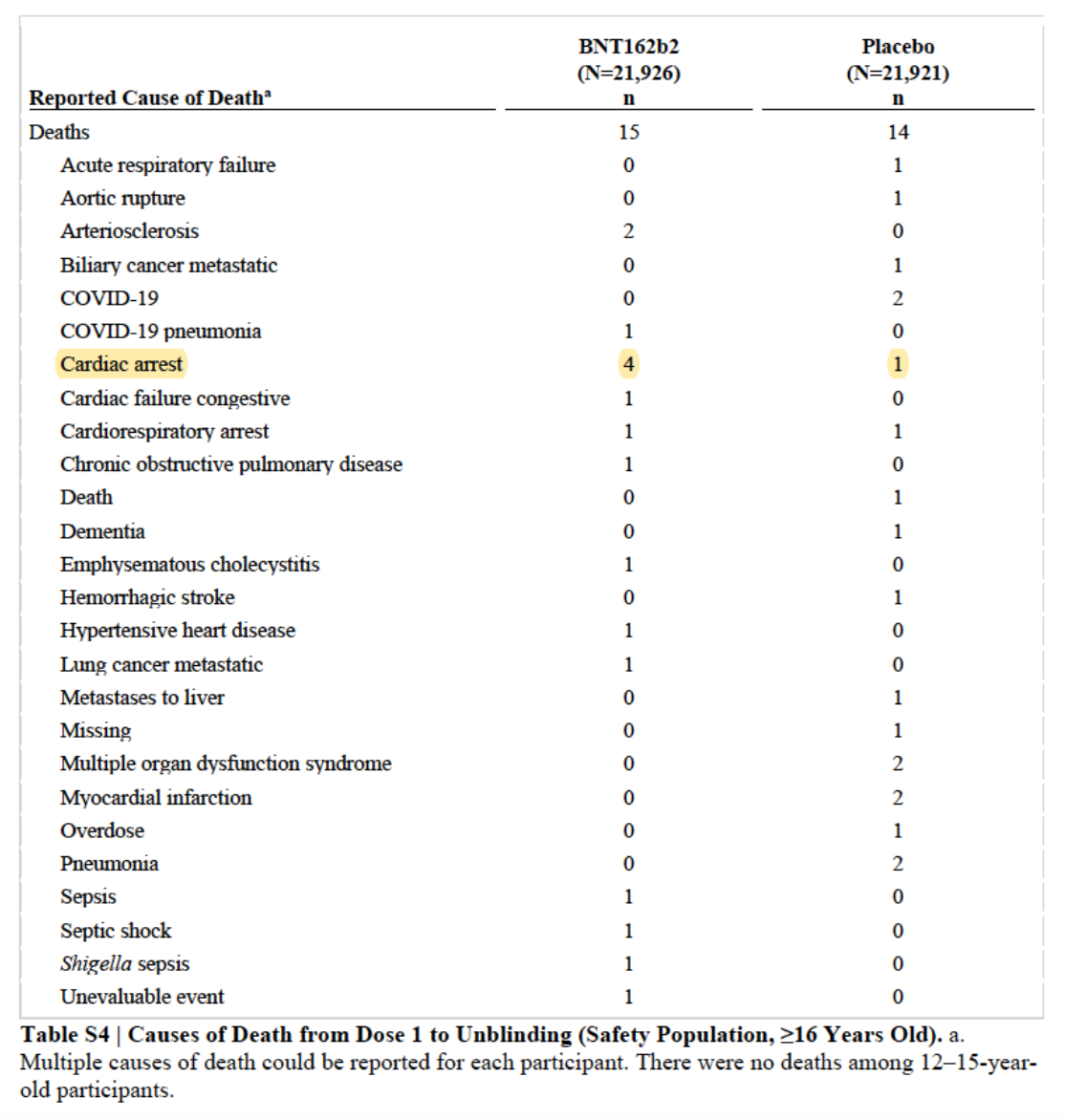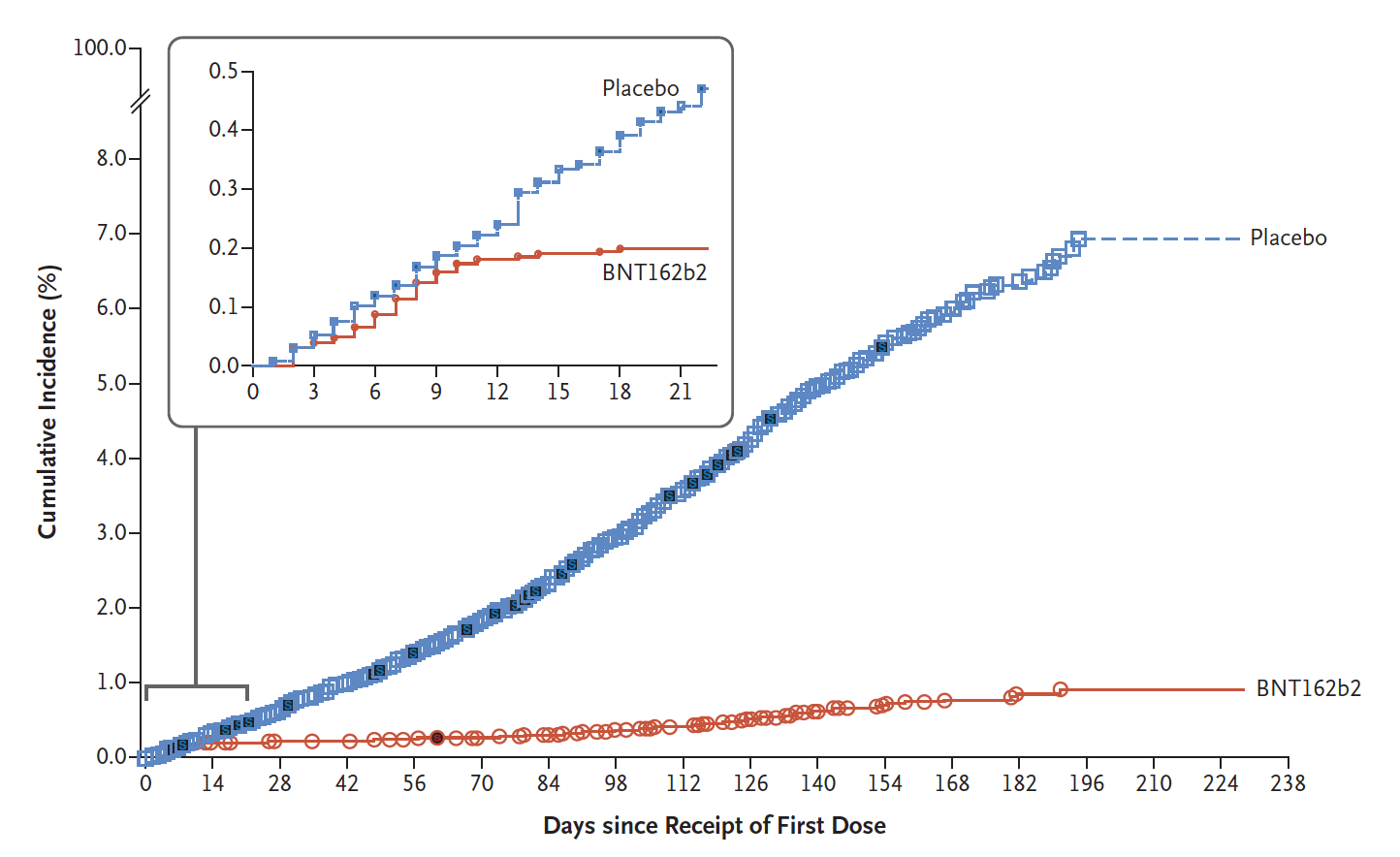Yves here. Rajiv Sethi has a look at RFK, Jr. based on positions he has taken in recent interviews. One can infer he’s not enamored with RFK, Jr.’s populist leanings, but points out the elites have set themselves up for that. Sethi also has a long discussion of a RFK, Jr. claim that has gotten many upset, that Pfizer’s own data shows all-cause mortality was higher, albeit slightly, among those that got the shot than those that got a placebo.
While Sethi’s take is more careful than most, he still reveals the dangers of economists (or pols or class action environmental lawyers) opining about medicine. IM Doc, who recall was overseeing clinical trials as part of, and for five year board chairman, of an institutional review board. He said an increase in all-cause morality would lead to an immediate halt in the trial to revisit safety. In other words, Sethi is incorrect to dismiss this signal as insignificant.
Mind you, the fact that Sethi is not quite right does not exonerate RFK, Jr. for having overegged the pudding. And the rules of engagement for critics of mainstream institutions and practices are that the burden of proof is on you, so you need to be accurate, otherwise you’ve made it easy to be dismissed. RFK, Jr.’s history of vaccine opposition has now anchored him to that topic, which may be appealing to a hard core of supporters. But it has the effect of forcing regularly to defend those views, when most Americans are concerned about bread and butter issues, not relitigating the vaccine wars.
By Rajiv Sethi, professor of economics, Bard College. Originally published at Imperfect Information
I knew very little about RFK Jr. until a couple of months ago, when he announced his candidacy for the Democratic presidential nomination. The reaction on social media, or at least in some corners that I inhabit, was swift and fierce. He was described as a crank and conspiracy theorist, opposed by members of his own family, running in the wrong party, his campaign destined for ignominious failure.
But the problem with mass opinion on social media is that it doesn’t reflect independent judgments. People tend to echo and promote the views of those they hold in high esteem, adopting beliefs by proxy. Both extravagant praise and merciless demonization ought to be met with a healthy dose of skepticism, at least until some direct knowledge has been attained.
So I listened to Kennedy on Rogan, Breaking Points, and Honestly, and to conversations about him on Bad Faith and the Fifth Column. I read measured critiquesby Vinay Prasad, and brutal assessments by Naomi Klein and Rebecca Traister. This took a lot of time as you can imagine, but at least I was able to form something resembling an informed opinion.
Kennedy believes with a high degree of subjective certainty many things that are likely to be false, or at best remain unsupported by the very evidence he cites. I discuss one such case below, pertaining to all-cause mortality associated with the Pfizer vaccine. But the evidence is ambiguous enough to create doubts, and the failure of many mainstream outlets and experts to acknowledge these doubts fuels suspicion in the public at large, making people receptive to exaggerated claims in the opposite direction.
Furthermore, the general themes that arise in Kennedy’s rhetoric—the corrupting influence of money in politics, the folly of military adventurism abroad, the smugness and failures of elite opinion, and the need for open and robust debate—will strike a chord with many voters across the ideological spectrum.
It’s an uphill campaign but I don’t think that it is doomed to failure. A couple of weeks ago, Adam Ozimek posted some prediction market prices according to which Kennedy had a 6.6% chance of securing the nomination. Chris Hayes thought that these prices were crazy, Conor Sen suspected that Russian money was involved, and many other replies echoed these sentiments. I felt, in contrast, that Kennedy was being underpriced by markets at that time. A few days later PredictIt listed the Kennedy contract in their nominee market, resulting in a huge spike in volume. The contract has traded in the 10-14 range ever since, ahead of Kamala Harris and behind Gavin Newsom:
These odds strike me as reasonable. If Kennedy surges, I suspect that Newsom will enter. And if Biden prevails regardless, his prospects in the general election will depend very much on the respect with which he treats Kennedy and his voters.
Of all the commentary that I have seen and heard on Kennedy’s candidacy and beliefs, the best by far is a Bad Faith episode in which Briahna Joy Gray presents the strongest case for each claim and Vinay Prasad responds thoughtfully on a case by case basis. But there is one important claim that they did not cover, and this concerns all-cause mortality associated with the Pfizer vaccine. Coleman Hughes mentioned this on the Fifth Column podcast, and observed that the alleged debunking of the claim by the AP made no sense at all.
Kennedy argues that according to Pfizer’s own data, the vaccine increases rather than decreases all-cause mortality. As Coleman observed, the attempt by the AP to debunk this claim is worse than useless:
This is an extraordinary response. The claim in question is not that the vaccine is ineffective in preventing death from COVID-19, but that these reduced risks are outweighed by an increased risk of death from other factors. I believe that the claim is false (for reasons discussed below), but it is not outrageous. This is the data to which Kennedy is referring:

The vaccinated group had fewer COVID-19 related deaths (one instead of two) but more deaths overall (fifteen rather than fourteen). In particular, there were more deaths from cardiac arrest (four instead of one). Kennedy interprets this as a consequence of the vaccine, while the researchers attribute it to random chance.
As discussed in this excellent post by Shin Jie Yong, the Pfizer study was not designed to detect differences in mortality risk, and participants were screened on entry to ensure that they were not especially vulnerable. As a result, the number of fatalities is too small (29 among 44,000 subjects) to make any confident statistical inference. Meanwhile, there are clear benefits of the vaccine in reducing rates of infection and severe disease (the filled in markers identify severe cases):
It is not unreasonable to suppose that among more vulnerable populations (who were excluded from the study by design), all-cause mortality would have been lower in the vaccinated group. Observational studies certainly seem to support this.
But the broader point here is that there may be groups in the population for whom the vaccine does not lower the risk of death. Even for such groups, one may encourage or even mandate vaccination in order to reduce transmission to those who are more vulnerable. But an honest debate would have to consider the extent to which the vaccine prevents infection and transmission, with a proper appraisal of the uncertainties involved. And on a range of issues—including vaccine mandates, masking recommendations, and school closures—an honest debate was not what we experienced.
This is fertile ground for the emergence of an insurgent campaign. Kennedy’s bid remains unlikely to succeed, but if his own party adopts a dismissive and contemptuous stance towards him and towards those whom he has mobilized, it will sink its own prospects. The proper and prudent response it to identify and absorb his legitimate concerns, while pushing back firmly but respectfully on the claims that lack merit.


